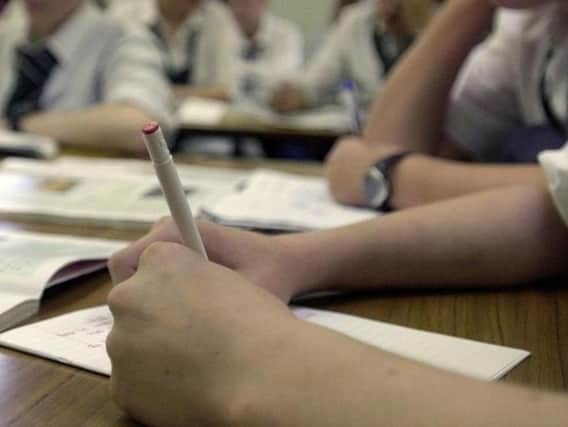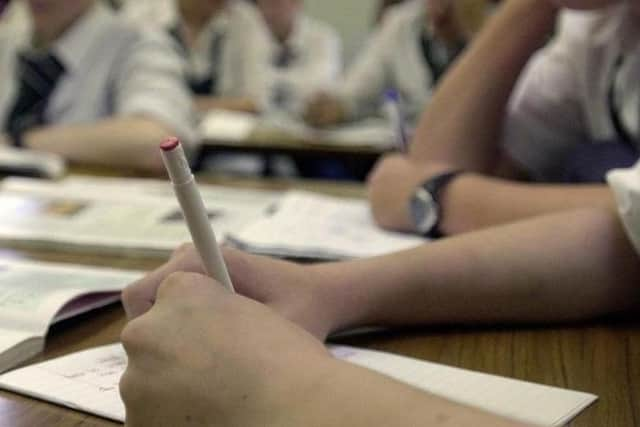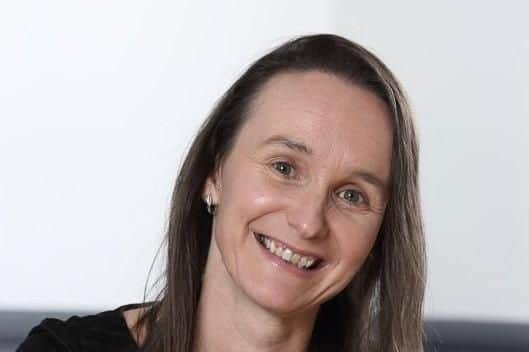What can be done to reduce school exclusions in Sheffield? You have your say


Sheffield Council recently said exclusion rates in the city were beginning to fall, following a more coordinated approach to offer earlier intervention, but they remain above the national average.
We asked people what could be done to reduce the rate of school exclusions in Sheffield, and here's what they said:


Â
LOUISE HAIGH, MP for Sheffield Heeley
Advertisement
Hide AdAdvertisement
Hide AdAs shadow policing minister, it might seem strange for me to be talking about school exclusions. But sadly, the recent surge in violence has caused us all to reflect on the complex causes behind it.
The figures are clear '“ 89 per cent of young people in custody were first excluded from school, and exclusion '“ either fixed term or permanent.  Exclusion puts young people at a much higher risk both of committing crime, and of becoming a victim of crime.


This might sound a remote possibility for most parents, but the truth is that exclusions are on the rise. Last year one school, in the area I represent, excluded more than one in four of its students at least once, and carried out one third of the entire city's exclusions.
They are an extreme case, but across Sheffield we have severe exclusion rates at many of our secondary schools, and even many of our primary schools. I recently visited the Inclusion Centre for excluded children, who told me that last year they received three times more pupils than their stated capacity.
Advertisement
Hide AdAdvertisement
Hide AdLook at the source of these exclusion rates and it becomes obvious that it's the ongoing process of academisation and the lack of funding for additional needs at the heart of the matter. Of our city's 10 most excluding schools last year, seven were academies '“ with only two maintained schools. While most of our schools are now academies, it's obvious that they are on the whole excluding more children, more often than the rest.
Nobody would disagree that exclusions are sometimes unavoidable, when behaviour is so dangerous or disruptive that it endangers the health or education of staff and other pupils. But excessive exclusions risk backfiring in their attempts to punish behaviour, by casting out pupils without the support they need to succeed, and putting both them and the rest of the community at greater risk.


These exclusion rates stem not from a quarter of children in a school being badly behaved, but from the Government's refusal to properly fund schools and local authorities who provide alternative provision. Their dogmatic academisation project takes away the reasonable accountability under which schools should operate '“ and their lack of oversight is putting our young people increasingly at risk.
Â
TOBY MALLINSON, joint secretary for Sheffield NUT (National Union of Teachers)
Advertisement
Hide AdAdvertisement
Hide AdThe accountability structures (Ofsted and the League Tables) are the root cause of the remorseless rise in school exclusions. The scandal of '˜off-rolling' just before exams to improve a school's statistics is another sign of the problem. Ofsted and the League Tables force schools down the path of teaching to the test, and teaching to the middle ability levels.


Supporting students with special needs and differentiating the curriculum for them tend to be side-lined. The lower ability children are the ones who too often end up being excluded, after experiencing an education system where they often will feel labelled as failures. It is a very destructive system for many students and their teachers.
The teachers usually go into teaching to inspire a love of learning and many decide to vote with their feet when they are forced into the intense and often pointless workload and the constrained teaching styles of the current system. Voting with their feet is something the students cannot do.
Removing the accountability structures and replacing them with a nationwide system of genuine support, moderation and training for all schools and teachers without political interference would redirect scarce funding to where it is needed.
Advertisement
Hide AdAdvertisement
Hide AdThis would stem the teacher retention crisis and start to improve the situation with exclusions by building an education system and curriculum that supports and includes all children. The idea of a National Education Service is a very hopeful one that, if properly introduced along with de-academising schools, could deliver these changes.
At present, funding is inadequate and misspent. Thousands of people are employed running the accountability structures and privatised services for no educational benefit. We need to move to a system where all education funding is focused on improving children's educational experience in the classroom, one where every child matters.
Â


BEN DAVIES, Chief executive of Whirlow Hall Farm Trust, which supports children who have been excluded or are at risk of being excluded from school
It's a complex problem with links to many broader issues - inequality, mental health, poor parenting, teacher attrition, education policy, gang culture and violence.
Advertisement
Hide AdAdvertisement
Hide AdWhatever the root causes, exclusions occur because children become disengaged with education - they don't enjoy it, they don't see the point, they'd rather be somewhere else. Boredom and frustration follow and if the child hasn't been shown how to behave, or simply can't control themselves, this can lead to disruptive behaviour that makes exclusion likely.
Keeping kids engaged with education is critical, and whilst we all want schools to be able to provide for every child that isn't reality at the moment. There needs to be an effective alternative for children that really struggle; some just need to be somewhere else for a while, with a teacher that has the time they need. Alternative Providers are a key component of a comprehensive education system that can meet the needs of every child.
That is what we provide at Whirlow Hall Farm Trust - an alternative location, an alternative approach, an alternative way learning. With a growing number of children affected, Alternative Providers must be able to meet tomorrow's demand.
It's also clear that, from a strategic perspective, long-term solutions are needed; prevention, not cure, is the answer. Accurate and timely assessment of additional needs is required; 80 per cent of excluded children have mental health issues or learning difficulties. Early intervention with those '˜at risk' is vital; at Whirlow we nurture and work with children as young as 6 whose schooldays are in danger of ending before they've begun. Continuity is important - provision should span holidays and school-transition periods.
Advertisement
Hide AdAdvertisement
Hide AdAll this comes at a price. We must accept the need to invest up front in order to reduce the long-term cost that exclusions have on society.
Â
DR NICOLA CROSSLEY, director of inclusion at Astrea Academy Trust
Pupils with SEND (special educational needs and disability)Â are not simply naturally naughty and yet they account for almost half of all exclusions, despite the fact that the SEND Code of Practice requires schools to ensure provision meets need.
The responsibility of the school is to educate its pupils, but if individuals or groups of pupils are repeatedly being excluded then that responsibility cannot be met. As educators, we talk about the importance of attendance and constantly tell parents and carers that '˜a day a week' lost to absence severely impedes the chances of success in external exams '“ and of course the ramifications are the same for excluded pupils.
Advertisement
Hide AdAdvertisement
Hide AdHere in Sheffield, the percentage of pupils being excluded is around one per cent higher than national, but the percentage of sessions lost to exclusion is almost double that nationally '“ that has to be as a result of schools issuing repeat exclusions to individuals and, I would argue, some schools '˜ramping up' the duration of subsequent exclusions. To address this the culture within the school needs to be underpinned by integrity, transparency and consistency.
In particular, we need to focus on three things. First, increasing understanding of behaviours that challenge. Second, ensuring that in the event of an exclusion, the length of exclusion is proportionate to the offence. And third, taking a proactive approach in reducing the risk of '˜repeat offenders'.
What we need to ensure then is that appropriate training is given - not just in behaviour management '“ but also in the primary areas of SEN so that colleagues are better able to determine whether the behaviours being presented are as a result of poor behaviour or due to an unmet need.
At Astrea Academy Trust, we have developed the Pre-Exclusion Assessment Process (or PEAP) as a pro-active way to manage exclusions. For any pupil who has received two fixed-term exclusions in a half term a PEAP is conducted, in collaboration with the Principal, to explore whether additional support is required and to consider how future exclusions can be prevented. For those who have been issued a permanent exclusion, the PEAP is conducted to ensure that all other avenues have failed and there really is no alternative.
As you can probably tell, I love an acronym, so in my view the key to reducing exclusions in Sheffield is to look UPP:
Understand;
Be Proportionate; and
Be Pro-active.